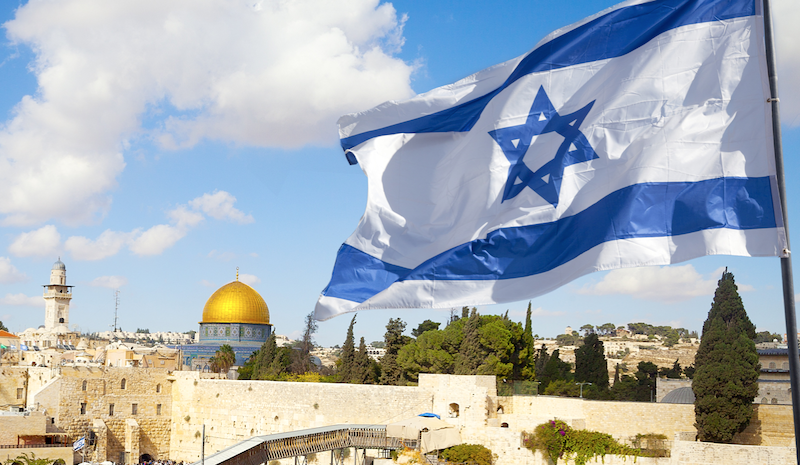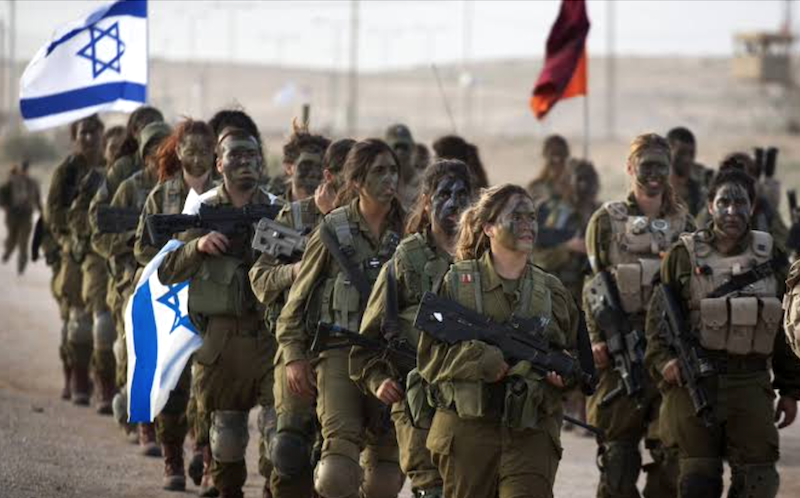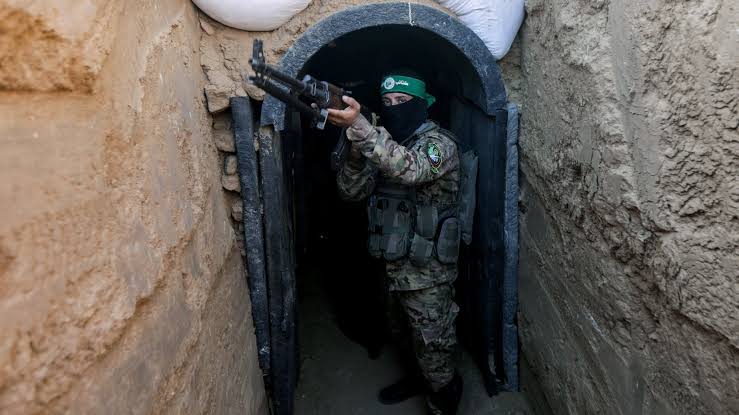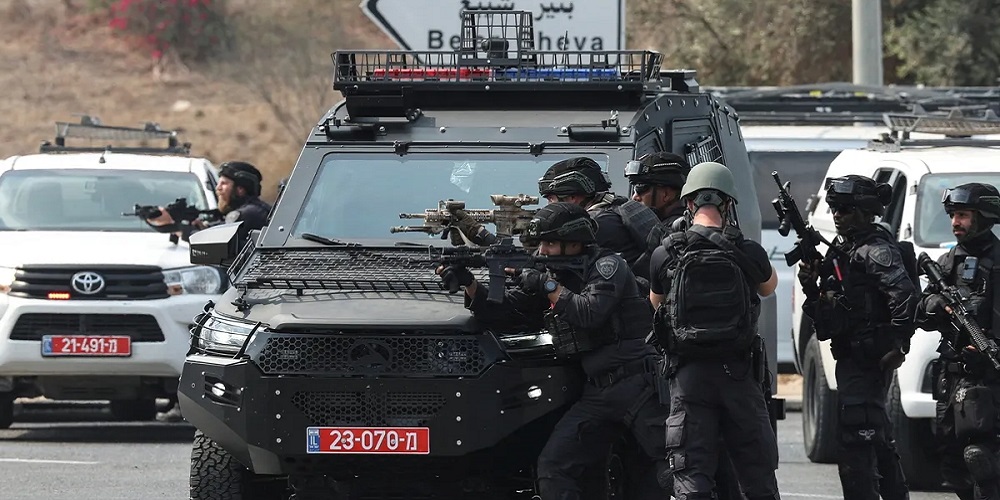UN Secretary-General, Antonio Guterres has condemned the strike on Al Ahli Anglican Episcopal Hospital in Gaza, with preliminary reports of hundreds killed and many others wounded, including women and children.
He also condemned the attack on a UN Palestine refugee agency (UNRWA) school in Al-Maghazi refugee camp in Gaza which killed at least six people.
UN spokesperson, Stephane Dujarric, said this in a statement on Tuesday.
Dujarric said the secretary-general extended his sincere condolences to the families of the victims and wishes a swift recovery to those injured.
He emphasised that hospitals, clinics, medical personnel, and UN premises were explicitly protected under international law.
Similarly, the World Health Organisation (WHO) condemned the attack on Al Ahli Arab Hospital.
“The hospital was operational, with patients, health and care givers, and internally displaced people sheltering there.
“Early reports indicate hundreds of fatalities and injuries,” it said in a statement.
According to the UN health agency, the hospital is one of 20 in the north of the Gaza Strip facing evacuation orders from the Israeli military.
It said that the order for evacuation had been impossible to carry out given the current insecurity and critical condition of many patients.
WHO said that other problems were lack of ambulances, staff, health system bed capacity, and alternative shelter for those displaced.
The agency, however, called for the immediate active protection of civilians and health care.
WHO condemns attack on Al Ahli Arab Hospital
The World Health Organisation (WHO) has condemned the attack on Al Ahli Arab Hospital in the north of the Gaza Strip.
WHO said in a statement released on Tuesday that the attack reported large scale casualties.
“The hospital was operational, with patients, health and care givers, and internally displaced people sheltering there.
“Early reports indicate hundreds of fatalities and injuries,” it said.
According to the statement, the hospital is one of 20 in the north of the Gaza Strip facing evacuation orders from the Israeli military.
It said that the order for evacuation had been impossible to carry out given the current insecurity and critical condition of many patients.
It said that other problems were lack of ambulances, staff, health system bed capacity, and alternative shelter for those displaced.
The statement called for the immediate active protection of civilians and health care.
”Evacuation orders must be reversed.
“International humanitarian law must be abided by, which means health care must be actively protected and never targeted,” it said.
Israeli-Hamas conflict: UN expresses concern for civilians as school attacked
The head of the UN Palestine refugee agency (UNRWA) Philippe Lazzarini on Tuesday expressed concern for the safety of civilians as UNRWA school was attached
The UN envoy said at least six people were killed when an UNRWA school being used as a shelter, was hit in the al-Maghazi camp in the middle region of the embattled Gaza Strip on Monday.
“Dozens were injured (including UNRWA staff) and severe structural damage was caused to the school.
“The numbers are likely to be higher. This is outrageous, and it again shows a flagrant disregard for the lives of civilians,” he said in a statement
No place is safe in Gaza anymore, he warned, stressing that it was hit as Israeli airstrikes and bombardment continues.
“At least 4,000 people have taken refuge in this UNRWA school turned shelter. They had and still have nowhere else to go.”
He said that the agency has provided the coordinates of its facilities to “relevant parties” on a daily basis.
The UN human rights office (OHCHR) issued a fresh alert on Tuesday for civilians left in northern Gaza, amid ongoing military operations in the enclave ahead of an anticipated full-scale Israeli response to Hamas’s October 7 attack.
The past 10 days of conflict have claimed the lives of 4,200 people, forced more than one million individuals to flee their homes following an order from the Israeli authorities and left large areas in the Gaza Strip “reduced to rubble”, according to the Office of the High Commissioner for Human Rights (OHCHR).
Meanwhile, the Assistant Secretary-General for Humanitarian Affairs, Joyce Msuya, on Monday, briefed Member States on the Gaza crisis, and said the situation “can only be described as an utter catastrophe.”
She added that as every hour passes, the restoration of essential supplies and services, “becomes every more critical.”
She said the UN would continue to identify urgent solutions for getting aid into Gaza.
UN Secretary- General Antonio Guterres will travel to the Egyptian capital Cairo on Thursday, according to his Spokesperson, Stephane Dujarric to engage with President Abdel Fattah Al Sisi on the Gaza crisis.
In southern Gaza where a humanitarian emergency is already playing out, UN relief agencies reiterated their call for a secure and reliable humanitarian corridor to deliver stockpiled aid into the Occupied Territory.
Both Egypt and Israel have faced multiple calls from the UN and international community to protect non-combatants impacted by the war.
“We call for unimpeded access, safe passage for desperately needed humanitarian supplies to Gaza,” Ms Abeer Etefa, UN World Food Programme (WFP) Regional Communications Lead for the Middle East and North Africa, said.
Some 300 tonnes of food “are either at or on the way to the Egyptian border in Rafah,” Etefa said. “That’s enough to feed around a quarter million people for one week.”
According to OHCHR, “a large number” of women and children are among the dead in Gaza, as well as at least 11 Palestinian journalists, 28 medical staff and 14 UN colleagues.
“It remains unclear how many more bodies may be buried in the rubble – with many families missing loved ones, terrified about their uncertain fate,” Ravina Shamdasani, OHCHR Spokesperson said.
Echoing urgent warnings from the UN agency for Palestinian refugees UNRWA about the desperate situation in Gaza amid heavy Israeli bombardments, from the air, sea and land, humanitarians echoed deep concern that healthcare facilities had been targeted – raising concerns about medical care for the injured, including pregnant women and those with chronic health issues.
Additionally, civilians attempting to relocate to southern Gaza have been struck and killed by explosive weapons, demanding urgent and independent investigation, OHCHR says.
The world body has called for an immediate humanitarian pause to facilitate aid delivery and prevent further suffering.
“Strict compliance with the laws of war and the protection of civilians is essential to prevent further loss of life in this dire crisis,” Shamdasani said.
Israeli-Hamas conflict: UN Security Council to consider resolution on ceasefire
The UN Security Council is expected to consider a draft resolution led by Brazil, calling for humanitarian ceasefire in the Israeli-Hamas conflict at the Gaza Strip.
The council had on Monday in its first intervention in the Gaza crisis voted down a resolution led by Russia, calling for humanitarian ceasefire.
In spite of the setback, diplomatic efforts are in full swing as ambassadors prepare to consider another text on the unprecedented crisis.
The 15-member body that oversees peace and security issues, is expected to decide on a second draft resolution, led by Brazil.
While it does not officially represent the position of the council until adopted, the proposal aims to mitigate existing humanitarian suffering, establish corridors for safe aid delivery, and protect UN and other humanitarian workers struggling to provide life-saving aid to the people of Gaza.
While both texts seek a humanitarian pause, there are key differences, including reportedly over the major point of contention in the Russian draft – explicit mention of the extremist group Hamas which controls Gaza.
Russia’s ambassador told the emergency meeting on Monday that Western powers opposing its resolution had “stomped” on hopes of de-escalation, while the U.S. ambassador said that in failing to condemn Hamas, Russia was “giving cover to a terrorist group that brutalises innocent civilians.”
In the hope of agreeing on unified action – never more important than during a time of international crisis – ambassadors usually seek to build support through resolutions, laying out a clear path.
Rival or parallel drafts of resolutions are common, leaving delegations to hammer out the details and soften the edges, often behind closed doors.
If common positions can’t be reached, the draft goes for a vote, where it either passes, or – as on Monday night – is rejected.
Meanwhile, UN officials continue to engage with all actors involved in the widening crisis, to de-escalate tensions, establish safe zones, and provide essential aid and medical support to those in urgent need.
UN Secretary-General Antonio Guterres is set to arrive in Egypt on Thursday to meet President Abdel Fattah Al Sisi and others.
World leaders are also making appeals to de-escalate, with the White House announcing President Joe Biden’s high stakes visit to Israel and Jordan beginning Wednesday, in a show of solidarity with partners in the region.
UN and other humanitarian agencies have worked round the clock to preposition aid since the latest war between Israel and Hamas broke out following the militant group’s surprise Oct. 7 attack on several locations inside Israel, and Israel’s subsequent declaration of war.
Thousands have reportedly been killed on both sides and hundreds of thousands have been forced to flee south inside Gaza, where the southern frontier remains closed so far to vital aid.
UN staff, primarily with the Palestine refugees agency (UNRWA), as well as medical personnel and aid workers, have also lost their lives.
Concerns loom over the potential for the violence to spill over into neighbouring countries, destabilising the entire region – and beyond.







